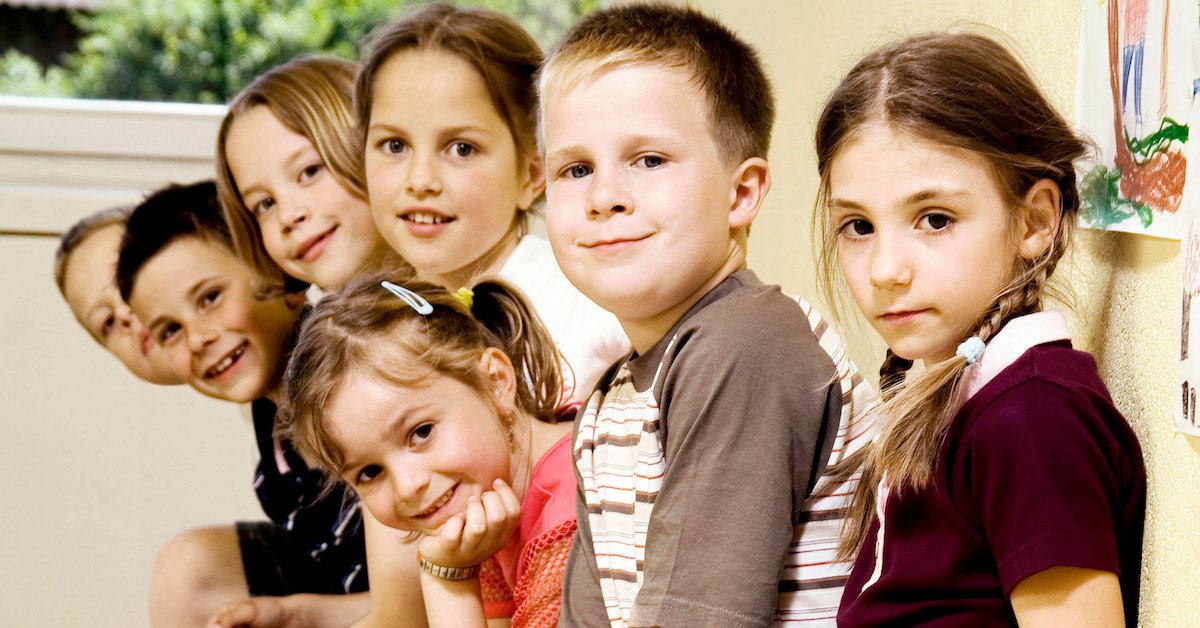Karma means action or deed, but also the result of an action. Hindu spiritual teacher Sri Swami Sivananda said, “There is a hidden power in karma or action which brings in fruits of karmas for the individual. The consequence of an action is really not a separate thing. It is a part of the action and cannot be divided from it.”
Much research has been done on the positive effects of doing good deeds or karma. When we engage in good deeds, we reduce our own stress — and experience what scientists are now calling the “helper’s high,” which is a feeling of empathy and love. The feeling we get from helping others is one aspect of what Sri Swami Sivananda was referring to as the fruits of karma.
Karma is woven into the fabric of the YogaKids program. YogaKids creator Marsha Wenig asks us to make commitments to our students and ourselves, and to teach with authentic joy and love. After graduating from the prestigious YogaKids program over four years ago, I continue to honor Marsha’s original intent for the YogaKids program — and always teach each class with a sense of playful optimism that brings joy to my students. Each YogaKids class I teach is a unique opportunity to work on my karma by sharing the many gifts yoga has to offer with each student.
Recently, I got the chance to practice Karma Yoga when I was asked to volunteer at a local charity. I was asked to teach a class for children who had a parent diagnosed with cancer — or, in some cases, a parent who had died from cancer. The YogaKids program is a perfect fit for this group of kids because it is fun, interactive, and just plain joyful. Children directly effected by cancer need to have fun, and they need to feel like there is fun to be had in the world. They need to understand that they deserve to have fun. These are all key components in every YogaKids class I have ever taught. YogaKids has taken the very adult topic of yoga and made it undeniable playful. Yoga encourages us to live in the moment; it teaches us to see the joy that is in the moment and not to worry about the past or the future. This concept of living in the moment is very beneficial for children who have experienced loss, as it helps them experience pleasure and happiness.
I arrived on a hot Tuesday in July with a bag full of props: beanie babies, breathing balls, coloring pages, markers, crayons and a joyful bounce in my step. Courtney, the director of the program, shared with me that they had yoga teachers come and work with the children in the past. She paused before adding, “it just didn’t work.” She didn’t have to tell me why it didn’t work because I already knew. The yoga they taught was basically an adult yoga class, and it just wasn’t fun for the kids. It was too serious. She said that it almost felt sad for the kids. “All that quiet listening to their breath,” she said. “The kids had too much time with their eyes closed to think about their sadness and grieve — and some kids afterwards said they felt worse then before they started the class.” I reassured Courtney that this class would very different from what they had experienced in the past, and that there was much fun to be had.
A large circle formed of children, volunteers and staff. Within the hour, we created, shared, moved, danced, barked, meowed, and mostly just lived from the joy in our hearts. The children were able to stay in the moment, because each moment held their attention with creative movement, laughter and imagination. The hour flew by, and ended with lemon toes — a guided exercise that helps children ring the tension out of their bodies. It left these kids feeling, as one child noted, “happy and calm.”
As we rolled up our mats and said our goodbyes, I was met with many a “thank you” and genuine positivity for the feeling the hour brought to the group. After the class, Courtney shared with me all the different aspects of the class that had surprised and delighted her and the students. “We would love to have you back,” she said. And I would love to come back.
As I floated out the door of the center, a wonderful event occurred. A deer walked across the street only about ten yards away from me. I was in a vey populated Chicago suburb; a deer siting is a very unusual occurrence. The deer is a Chinese symbol for good fortune and longevity. The word for deer in Chinese is “lu” and is a homonym of the word “income.” Consequently, the deer represents a prosperous and fortunate long life. “What an unusual coincidence,” I thought. This deer was an affirmation that I was fortunate to have worked with this group — and fortunate to have the YogaKids tools to positively impact them. I saw the deer as the fruit of my good deed. My karma.
I had parked a few blocks away from the center. When I arrived at my car, I saw a parking ticket was sitting on my windshield. I remembered that in my excitement to get to class, I had failed to put money in the meter. “Now that doesn’t seem like good fortune,” I thought. But when I took a closer look at the notice, I realized it was not a parking violation. It was simply a warning. “What a wonderful turn of events,” I thought. I didn’t see the violation as a “warning” — more of a sign that the Universe is supporting me, giving me back a little bit of what I’m putting out there. As the best-selling author Elmer Leterman once said, “Good fortune happens when preparation meets opportunity.” My preparation was the volunteer work, the opportunity was my empty meter, and the good fortune… well, I create the possibility of good fortune every day when I choose to volunteer and teach YogaKids. I had much to write about that night in my gratitude journal. The quote for the day was, “My Helpers High.”

